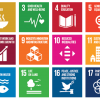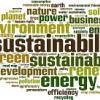News
Displaying Results 351 - 375 of 434
Overfishing threatens the sustainability of maritime resources and endangers food security. In the last few years, the share of fish stocks that are within biologically sustainable levels has reached its lowest point in history, down from 90% in 1974 to 65.8% in 2017. Illegal, unreported and…
By Ms. Olga Algayerova, UN Under-Secretary-General and Executive Secretary of UNECE, and Ms. Elisabete Quintas da Silva, Head of Department, Sustainable and Efficient Use of Resources Operational Programme, Government of Portugal, and Chair of the UNECE Committee on Environmental Policy.
This…
Four decades of experience under the UNECE Convention on Long-range Transboundary Air Pollution (Air Convention) have demonstrated that ratification and implementation of the Convention and its protocols reduces health and environmental impacts in a more cost-effective way than unilateral action by…
Improving energy efficiency is a cost-effective means to support economic development while contributing to climate action. On a national scale, energy efficiency helps strengthen energy security, reduce energy expenditure, slow down energy demand growth, reduce investment needs for new generation…
This year’s High-Level Political Forum (HLPF), taking place from 6-15 July, will underscore the SDGs as the pathway to COVID-19 recovery and building a healthier, more inclusive and sustainable future. Nine SDGs will be in focus: Goals 1 on no poverty, 2 on zero hunger, 3 on good health and…
Each UN country team develops with the host Government a strategic plan to support national development priorities and strategies. The result is the UN Sustainable Development Cooperation Framework (UNSDCF). The preparation of the UNSDCF begins with a Common Country Analysis (CCA), which provides…
Countries in the Caucasus, Central Asia, Eastern and South-Eastern Europe are stepping up efforts for their sustainable energy transition with ambitious plans and policies, aiming to significantly cut CO2 emissions and advance implementation of the Sustainable Development Goals (SDGs) and the Paris…
Statistics are all around us. All the more since the COVID-19 pandemic began. Rarely do we see a news story, political debate, press conference or even a social media debate that doesn’t reference statistics. In this environment, the custodians of the figures—the national statistical offices (NSOs…
The heads of national statistical offices of 59 countries and 24 international organizations are gathering this week in Geneva and around the globe for the 69th plenary session of the Conference of European Statisticians, the decision-making body for statistical matters in the UNECE region and…
Transport continues to be a significant source of air pollution, especially in cities in the UNECE region. Air pollutants, such as particulate matter (PM) and nitrogen dioxide (NO2), harm human health and the environment. Although air pollution from transport has decreased in the last decade…
Setting the major directions to strengthen effective public participation and access to information and justice by 2025 was the focus of the twenty-fifth meeting of the Working Group of the Parties to the Convention on Access to Information, Public Participation in Decision-Making and Access to…
Migration is an old and growing phenomenon – the United Nations Populations Division estimates that around 266 million people live outside their country of origin. In the UNECE region, by 2019 there were around 45 million people from Eastern Europe and Central Asia living abroad, with more than…
Both innovation and Public-Private Partnerships (PPPs) are essential drivers of economic development, environmental sustainability and social inclusiveness.
The UNECE region was hit hard by the COVID-19 crisis, not only because of the health crisis itself but also, even as the threat recedes…
Innovation has huge potential to drive sustainable development if supported by a vibrant innovation ecosystem. This requires effective linkages and collaboration at national level, and an innovation culture nurtured by a system of support to start ups and institutions such as business incubators.…
A team of expert labour statisticians is to be convened by UNECE for the Conference of European Statisticians, to investigate how to reflect new ways of working in the employment figures we use every day.
Over the past year the work-from-home orders and business closure rules issued by many…
World Ocean Day is a reminder of the growing depletion of maritime resources. Currently, FAO reports that 34.2% of all maritime stock is fished unsustainably, posing a threat to global marine ecosystems. The FAO Agreement on Port State Measures (PSMA) is the first binding international agreement on…
Policy solutions for pressing problems like air pollution require sound data. Emission inventories can help in determining the major sources of air pollution in a given country.
As a result of integrated air pollution management strategies developed under the UNECE Convention on Long-range…
Over the past 100 years, humans have massively altered flows of nitrogen on our planet. While this has increased food production, it has led to and multiple threats to our health and risks irreversible and abrupt environmental change if decisive action is not taken.
Driven by intensive animal…
The importance of statistical information to help us cope with disasters has never been clearer than over the past year. As the Covid-19 pandemic has gripped the world, numbers have become our bread and butter. Yet the pandemic has also highlighted the challenges and imperfections in many systems; …
The economic and sanitary crisis caused by the pandemic calls for new ways of doing business. We need to digitalize data and document exchange in cross-border transport and supply chains to avoid person-to-person contacts, while increasing the efficiency of trade and transport operations. However,…
Integrated management of water, energy and land resources, while protecting ecosystems, remains a substantial challenge in the Western Balkans. The Water-Food-Energy-Ecosystems (WEFE) Nexus approach offers solutions that can reconcile potentially conflicting interests as they compete for the same…
Contrary to what most people think, transport is not the major source of particle pollution in the air. In fact, in Serbia and many other countries, domestic heating is the most important source of harmful particle pollution (PM2.5 and PM 10). In Serbia, pollution is a result of heating, which is…
At the informal virtual policy dialogue on fashion in Moldova hosted by the United Nations Economic Commission for Europe (UNECE) on 19 May 2021, members of the UN Alliance for Sustainable Fashion and stakeholders of the Moldovan fashion industry came together to discuss the potential of this…
Black carbon (BC) is an air pollutant with significant impacts on our health and climate. Resulting from incomplete combustion processes, it is part of fine particulate pollution (PM2.5) and estimated to have a warming impact on climate that is 460–1,500 times greater than that of carbon dioxide (…
Mobility is a primary enabler of our economic and social life. However, despite its many benefits, the costs of mobility to societies around the world remain unacceptably high. These include greenhouse gas emissions (transport accounts for some 24% of global CO2 emissions, three quarters of which…
























